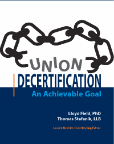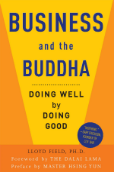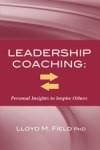

Lloyd Field
Lloyd Field
Our Books
Please feel free to download a copy of our books below
______________________________________________________________________________________________________________

Unions are not Inevitable!
Learn the essentials from the man whose clients have never lost to a union organizing drive! A 100% successful track record over more than 30 years.
You’re in management, so start leading your employee relations in a way that makes sense…
• Ensure your bottom line is secure
• Ensure leadership behaviour that values employees and customers
• Engage your employees to their fullest capabilities
Remaining union free is both a science and an art.The Science - Policies, procedures, and programs that afford a fair and equitable system for all.
The Art - The creative use of a multitude of human resources competencies to ensure a positive and productive work environment.
In these pages, discover:
• Signs of discontent in the workplace
• Better communications methods
• Superior hiring practices
• Effective training methods
• How to manage painlessly if you have a union
• How to win against a union drive
• Managing a decertification
Each chapter includes a Take Action section, so you can start implementing the steps learned within the chapter; and a Discussion Points section for senior management to take into meetings. Also included are real life case studies that are priceless lessons. This completely revised and fully updated 5th Edition of Unions Are Not Inevitable!© provides a step-by-step program that works!Note: For individual chapters, please scroll down the page to the request form

Decertification
An exciting opportunity for change presents itself when you examine the employees’
reasons for the union’s involvement in the first place. Our research
and shop floor experience identify 3 primary reasons for unionization.
They are:
• job dissatisfaction or employees unable or unwilling to become
positively engaged with their work,
• quality of the relationships [lack of dignity, open and honest
communications, transparency in all dealings, recognition, etc.]
among Front Line Leaders [supervisors] or managers and employees,
• treatment of employees, usually by senior management, that leads
to a pervasive negative atmosphere characterized by a lack of trust
and respect; by treating employees as children and not adults; and,
behaving as though people are human machinery. This becomes a
culture of disharmony and dissatisfaction; and a precursor to union
activity.
These reasons [and others unique to one’s own business Values, practices
and workplace culture] cause employees to believe that their needs could
only be met through their perception of the influence and negotiating prowess
of a trade union. Employees believe there is no other way to receive equitable
treatment.We will provide an overview of Positive Employee Relations™ and a more detailed
presentation about a unique approach to decertification. To be very clear,
at the outset, the decision to unionize and the decision to remove the union
[decertification] is in the employees’ hands — it is their decision! Positive
Employee Relations™ is in management’s hands. Management must sponsor
it, maintain it and train their managers [regardless of level] to follow
its principles and practices at all times. In many cases Positive Employee
Relations™ will likely be new to your organization. It will replace the thinking,
behaviours and decisions that many managers have made in the past,
which led to the union in the first place.Note: For individual chapters, please scroll down the page to the request form

Business and the Buddha
About The Book
Corporate Social Responsibility Enhances Profit When it comes to leading a business, everyone wants to do well. That is the nature of free enterprise. But can we do good at the same time?
Lloyd Field and, indeed the Dalai Lama, who wrote the Foreword say, unequivocally – "YES!" Dr. Field’s Business and the Buddha lays out the guidelines for putting ideas about individual and corporate social responsibility into practice without sacrificing the bottom line. No longer can business—big or small, local or international—afford to focus solely on profit. The real assessment of a business’s worth must take into account a human-based values system and the environmental acknowledgment that we all share this small planet. The first decade of the 21st century proved, once again, the devastation that corporate greed can bring to society. That doesn’t mean a business should not be profitable and compete in the marketplace; it means that investing in efforts to create a better society can be, on many levels, an expression of corporate social responsibility and an enhancement of the bottom line.
People—A Pillar of Triple Bottom Line Thinking
Dr. Field has a firm belief that before we can change others, we must change ourselves. He has found this principle throughout his study of the lessons taught by the Buddha. By drawing on traditional Buddhist thinking, Lloyd shows how business leaders—regardless of their past or present experiences—can turn dissatisfaction into satisfaction. Happiness and security are initially an expression of oneself. Once this is understood and experienced, leaders can bring this to the board table or the lunch table.
Note: For individual chapters, please scroll down the page to the request form

Leadership Coaching
About The Book
Based on 30 years of international experience—in coaching and management consulting—Lloyd Field puts his Leadership Coaching Model into this highly principled and very readable book. The gist of the book can be highlighted by the following quote:
Transformational leadership is not about the position one holds, but rather the actions taken to improve opportunities for development of self and others."
What society will always need are leaders willing to be challenged by new ways of thinking and managing. Coaches do not tell leaders how they should lead or manage. Rather, the coach assists them to reflect critically on their own intentions and behavioural choices.
On an individual level, this critical reflection results in informed decisions that influence actions to continuously improve one’s behaviour and performance. This can best be accomplished by challenging today’s leaders to appreciate the transitional role they can play in shaping the next generation of leaders.
The responsibility for self-development must be left to the leader. There is always an emphasis on actions to improve both management and leadership competencies throughout the organization. Coaches will have a significant impact on what our organizations value and how they inspire leaders to implement the organization’s vision and mission.
Note: For individual chapters, please complete the request form below
Looking for Individual Chapters?
Fill out the form below and we will forward you the requested chapters via email.
Please make sure to indicate which chapters you wish to receive in the "message" box below.
© 2019 Lloyd Field. All Rights Reserved.



